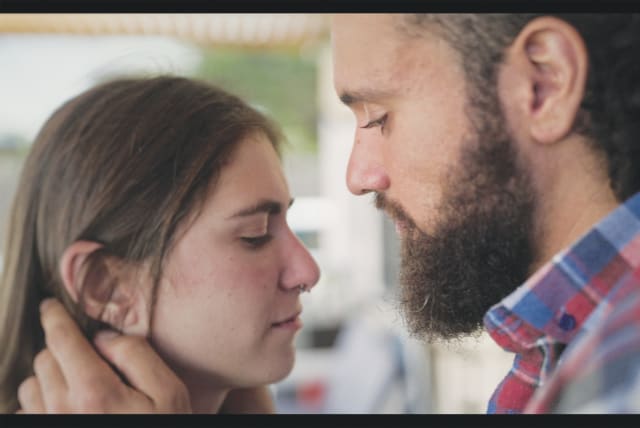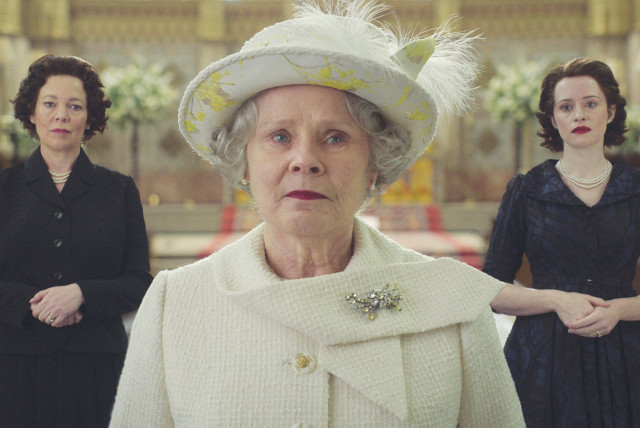KAN 11 to broadcast documentary of Nova massacre, Netflix's 'The Crown' ends its reign

KAN 11 will broadcast the documentary, Supernova: The Music Festival Massacre, on December 23 at 10 p.m.
The October 7 Hamas massacre at the Nova Music Festival in Re’im was one of the most documented atrocities of all time, since thousands of victims targeted by the terrorists recorded as much as they could of what happened, and, as we have all learned to our horror, the terrorists themselves took much footage, which they broadcast on social media.
Clearly, there are many stories to be told about this tragedy, and KAN 11 will broadcast the documentary, Supernova: The Music Festival Massacre, on December 23 at 10 p.m. (or whenever the news is over). It will then be available on the website, kan.org.il.
How was this documentary made?
This documentary, which was made by Yossi Bloch, Noam Pinchas, and Duki Dror, tells the stories of a number of survivors, through interviews and real-time video footage, and includes a small amount of video shot by the terrorists. It is of course very difficult to watch, but it is powerful, and the narration and interviews provide a modicum of comfort, because you know that the interviewees survived.
There are also interviews with Ilan Regev, whose children, Itay and Maya, were wounded and kidnapped at the party but who have since been released, and Hanania Binyamin, a local policeman who was one of the first members of the police force to arrive at the scene of the party.
This movie is actually the second documentary to be released about the massacre, and it follows #NOVA, currently available on Yes VOD and Sting TV, which is comprised entirely of video clips and texts.
War influences television in Israel
The war has had an influence on other aspects of television as well. The popular KAN series about the staff of a supermarket, Kupa Rashit or “Checkout,” has filmed a special episode about the war, and the network just announced that it will be broadcast on January 1, following the news. Before it is shown on television, it will be screened for evacuees all over the country.
The various streaming services and satellite networks are vying for viewers, and it gets increasingly more confusing to know what to pay for and what to skip. Earlier this week, the Yes satellite network in Israel announced it was partnering with Paramount and Universal to make content from the streaming services Peacock and Paramount+ available to Yes subscribers.
In early 2024, Peacock will release the series, Ted, based on the movies about the foul-mouthed teddy bear. The series was created by and stars Seth MacFarlane in the title role. Later in 2024, the series, The Tattooist of Auschwitz will be released. Based on the novel of the same name, it stars Harvey Keitel as the real-life tattooist Lale Sokolov.
Other series from Peacock coming up are Apples Never Fall, starring Annette Bening and Alison Brie, about a family that tries to cope when the mother disappears, and Belgravia: The Next Chapter, based on a series by Julian Fellowes, the creator of Downton Abbey. Paramount+ will be releasing Three Women, a series about the intersecting lives of three very different people, starring Betty Gilpin, Shailene Woodley, and DeWanda Wise.
The end of an era on Netflix
But before these new series arrive, it’s time to consider the end of the reign of Netflix’s The Crown. As I had feared, the last six episodes, which were released on December 14, spent a lot of time on the Prince William-Kate Middleton romance, and were predictably bland. Nothing against Kate, she just isn’t the most interesting person that the show has ever portrayed.
But before she comes along, in Episode 5, Prince Charles (Dominic West) enlists the help of his own father, Prince Philip (Jonathan Pryce), to try to get William (Ed McVey) to open up about how he feels about Diana’s death. Once the young prince starts talking, it turns out he blames Charles. It was an emotional episode that portrayed the very human side of the royals, and was a reminder of why the series worked when it was at its best. In a certain way, The Crown is similar to The Sopranos, which was really a series about a dysfunctional family led by a philandering, depressed patriarch more than it was a gangster show.
Does anybody actually remember why Tony fell out with the Leotardo clan, or Johnny Sack, in the same way that they can recall Tony and Carmela getting separated, or A.J.’s serious depression?
Similarly, The Crown was actually a show about another dysfunctional family, albeit one with a lot of horses, some very big houses, and visits by historical figures. Most of us kept tuning in because of the emotional underpinnings, not because of the debates on whither the monarchy.
One problem with the last season was that we all know that Queen Elizabeth (Imelda Staunton) did not in fact abdicate so that Charles could take over, so this whole plotline lacks any real interest. But it is nice to see her debate with two versions of her younger self in the final episode, with Claire Foy and Olivia Colman returning to their roles briefly, about whether she should stay on.
Looking back, even the Diana episodes didn’t hold a candle to the first two seasons, where Foy and Matt Smith played Elizabeth and Philip. The two best episodes of the entire series both came in the second season, and while one of these was a very specific historical story, the other featured a marital crisis that could have taken place, in a more modest setting, in any family.
In episode six of that season, “Vergangenheit,” the Duke of Windsor aims to reenter public life, and Elizabeth is confronted with his worship of Hitler during the Nazi era and his scheming to regain the crown. According to declassified documents, she learns that he urged the Fuhrer to continue his bombing campaign against the British to try to demoralize them. Her eventual decision proved to be, in many ways, the pinnacle of her leadership, when she stopped being a good girl and truly owned her power as the monarch.
The other is the final episode of that season, in which a desperately unhappy, pregnant Elizabeth finally finds the strength to confront her unfaithful husband. While all the actors who took over in the subsequent seasons were good, none ever matched the intensity of Foy and Smith in their scenes together. Even if you were underwhelmed by the final episodes, you might want to go back and revisit those first two seasons.
Speaking of dysfunctional families, if you’re looking for a comedy about one, you might try the 2003 version of Freaky Friday, on Disney+ (also available through Yes). Based on a children’s novel by Mary Rodgers, the daughter of composer Richard Rodgers, it tells the story of a mother and daughter who switch bodies and have to get through a very tricky day for both of them.
There have been so many movies with this kind of theme, but this is really the best one. Lindsay Lohan, who plays rock ‘n’ roll musician high schooler Anna, was at the height of her stardom when she made this, but the standout is Jamie Lee Curtis as Tess, the control-freak mom. Curtis’s star has ascended again in recent years, but she was sublimely funny in her dual role here, and this is a movie that you may be able to coax your kids into watching with you.
Jerusalem Post Store
`; document.getElementById("linkPremium").innerHTML = cont; var divWithLink = document.getElementById("premium-link"); if (divWithLink !== null && divWithLink !== 'undefined') { divWithLink.style.border = "solid 1px #cb0f3e"; divWithLink.style.textAlign = "center"; divWithLink.style.marginBottom = "15px"; divWithLink.style.marginTop = "15px"; divWithLink.style.width = "100%"; divWithLink.style.backgroundColor = "#122952"; divWithLink.style.color = "#ffffff"; divWithLink.style.lineHeight = "1.5"; } } (function (v, i) { });

